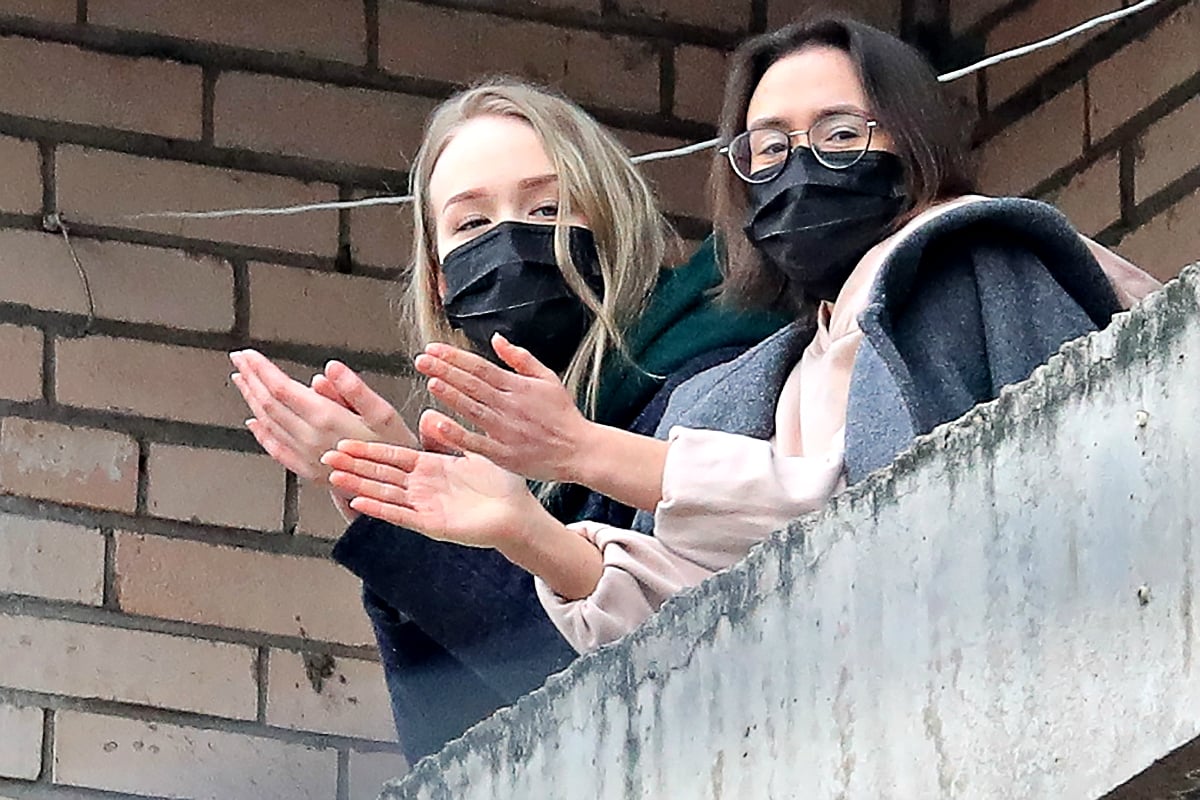
Amid the wall-to-wall coverage of the COVID-19 pandemic — which has ramped up in Australia in the past week — you would have seen arresting images from around the world: deserted cities, exhausted medical teams, queues a mile long of desperate people at airports and those waiting to be tested.
But not all of these images have been of people suffering, or fighting over loo roll in the supermarket. Something else has emerged.
The Quicky’s Claire Murphy breaks down your most answered questions about COVID-19. Post continues below.
People singing and playing musical instruments on balconies, people leaving notes around their local area to see how they can help their neighbours, supermarkets responding to calls to designate special times for older and less mobile people to get their essentials.
After disaster strikes in Australia, we often marvel at the strength of our communities and our ability to come together in times of hardship. In truth, this isn’t an exclusively Australian trait – it’s what unites us as humans, regardless of location or ethnicity.




























































































